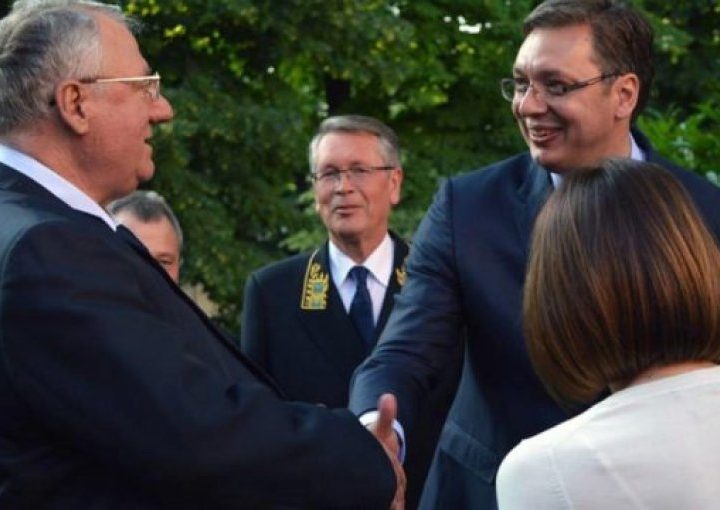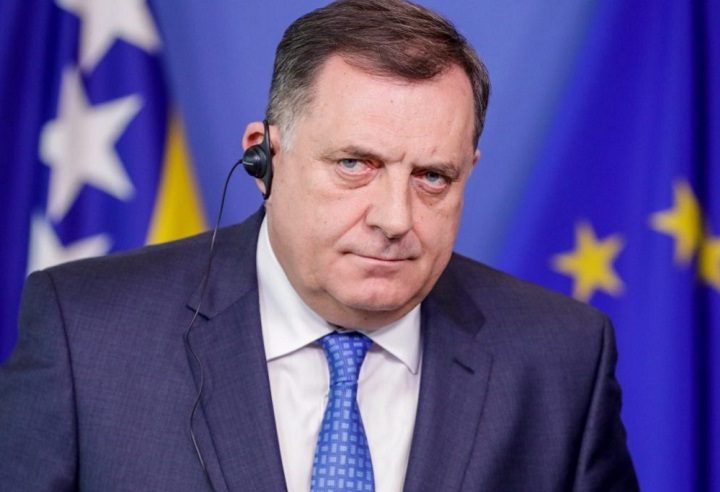
The degradation of media freedom has continued across Europe in the year of Russia’s invasion of Ukraine, when at least 12 journalists were killed in the line of duty, according to the Council of Europe report War in Europe and the fight for the right to report. .
At the end of 2022, 127 journalists had been arrested, up 60 per cent on the previous year. Most of them are in Turkey (52), Belarus (32), Russia (22) and the occupied territories of Ukraine (14).
The highest number of cases of harassment and intimidation of journalists in 2022 was recorded in Russia, as well as in Serbia, Italy, Poland, Croatia and Greece.
Although the number of cases is down (94) compared to the previous year (110), the report by 15 international organisations concludes that harassment, intimidation and smearing have become the new normal, to the extent that some journalists do not even report on them anymore.
In 2022, the platform published 289 alerts in 37 countries, up from 282 in 2021. However, it says it received replies to 48 alerts, or 16%, and 13 were considered “resolved” by the end of the year.
“Partner organisations expressed astonishment at these figures, which cast doubt on the commitment of Member States to seriously fulfil their obligations under the Council of Europe Statute and the European Convention on Human Rights,” the report said.
Media at war
Since the start of the Russian invasion of Ukraine in February 2022, at least twelve journalists and media workers have been killed and 21 injured in the course of their professional duties.
The Ukrainian authorities have accredited more than 11,000 journalists to cover the Russian invasion.
“Reporting on the war has been challenging due to indiscriminate shelling, targeted attacks on broadcasting and communications infrastructure, frequent and prolonged power outages, and attempted arrests of journalists in Russian-occupied areas,” the report said.
It also recalls that international journalists’ and press freedom organisations have provided support to Ukrainian and foreign journalists by donating humanitarian aid, security material and even generators to help newsrooms facing blackouts.
“They have investigated the murder of journalists and filed applications for violations of international humanitarian law with the International Criminal Court in The Hague. They have assisted in asylum procedures, in particular for Russian journalists,” the report says.
Despite the fact that Russia is no longer a member of the Council of Europe, the partner organisations declared that they will continue to monitor the situation of media freedom and attacks on journalists in Russia, where a parallel process of brutal repression of independent media has been taking place. to the invasion.
The report recalls that the Russian authorities have imposed total censorship on war reporting and that deviating from official discourse is a criminal offence for which journalists face up to 15 years in prison.
In Russia, several court cases have been brought against journalists for “spreading” fake news. Among those accused of spreading false information are journalists working for the New York Times, Radio Free Europe and Russian journalists in exile.
“Crude and dehumanising propaganda, hate-mongering and disinformation have flooded the state-controlled Russian news space. The last remaining independent media have been banned, closed or left the country. Hundreds of Russian journalists have decided to leave the country to cover their country at war.” , the report says.
It also cites the case of Nobel Peace Prize winner Dmitry Muratov, who was forced to close down Novaya Gazeta after almost 30 years of existence.
In the first six months of the conflict, “almost 7000 websites were blocked in Russia, including those of leading independent media and human rights organisations.”
The problem of SLAPP lawsuits in Serbia
Serbia is one of the countries where journalists and media are increasingly being sued for defamation, along with Albania, Bulgaria, Croatia, France, Italy and Poland.
“Increasingly, legal threats against journalists are being instigated by politicians, including those currently in government. (…) In Serbia, Dijana Hrkalovic, a former state secretary at the Ministry of Interior who is currently on trial for allegedly influencing a plot, has filed a defamation lawsuit against the Crime and Corruption Reporting Network (KRIK) and its editor Stevan Dojcinovic,” the report said.
At least 20 cases in Europe were brought to intimidate and silence journalists and media – dragging them to court and wasting time and money, claiming hundreds of thousands of euros in reputational damage, according to the report.
In Bosnia and Herzegovina, the problem of public service funding
The authorities have resorted to tricks to control the public media, especially at election time, by packing their boards with supporters, undermining their financial viability and bringing the watchdog agencies under their control.
The BiH public service BHRT was cited for problems with subscriptions and mounting debts, while Serbia was listed alongside Hungary and Malta as a country where the public service reports in a biased way in favour of the ruling party, the OSCE Office for Democratic Institutions and Human Rights (ODIHR) said in a report.
“Governments have sought to turn public and private media into propaganda weapons, while creating hostile economic and political conditions for independent media and restricting freedom of expression, often under the guise of protecting network security and combating hate speech, terrorism or ‘fake news’,” the report says.
The report also mentions spyware such as Pegasus or Predator. The tools in question are smartphones used for eavesdropping, and their use has been reported in a number of countries, including Hungary and Greece.
The report welcomes the draft European Media Freedom Act (EMFA), but also stresses the need for improvements.
Harassment and defamation campaigns continued, as in previous years, with the aim of forcing journalists and media outlets not to report sensitive stories, the report said.
Among the organizations of the Platform for Promoting the Protection and Safety of Journalists are the European Federation of Journalists, the Association of European Journalists, Reporters Without Borders, the International Federation of Journalists, PEN International, the Committee for the Protection of Journalists, the International Press Institute and others./RSE/

 “Russia is trying to start a war in the Balkans”
“Russia is trying to start a war in the Balkans”  How did the Vučić-controlled media conceal the EC’s findings for Serbia?
How did the Vučić-controlled media conceal the EC’s findings for Serbia?  Sesel joins Vucic on elections, fear of isolation from the world and regression
Sesel joins Vucic on elections, fear of isolation from the world and regression  Vucic calls parliamentary elections for 17 December, right-wing parties are coming out in three columns
Vucic calls parliamentary elections for 17 December, right-wing parties are coming out in three columns  Why is Vucic waiting until the last days to call elections for 17 December?
Why is Vucic waiting until the last days to call elections for 17 December?  Dodik called for “Greater Serbia” in Russian Sputnik, Montenegro and Albania reacted strongly
Dodik called for “Greater Serbia” in Russian Sputnik, Montenegro and Albania reacted strongly